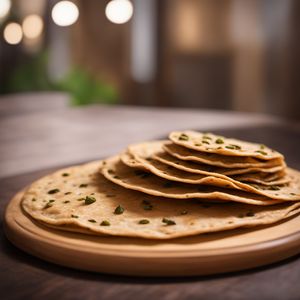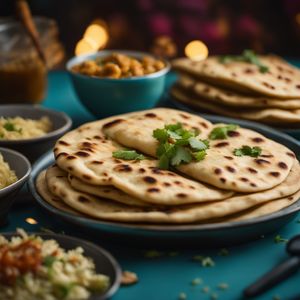
Dish
Somun
Somun is made from a mixture of flour, yeast, salt, and water. The dough is kneaded and left to rise before being shaped into round loaves and baked in a hot oven. The bread is best served warm and can be eaten on its own or used as a base for sandwiches. Somun is a great source of carbohydrates and is low in fat and sugar.
Origins and history
Somun has been a staple food in Bosnia and Herzegovina for centuries. It is believed to have originated in the Ottoman Empire and was brought to Bosnia by the Turks. Somun is now a popular bread throughout the Balkans and is enjoyed by people of all ages.
Dietary considerations
Somun is suitable for vegetarians and vegans. It contains gluten and may not be suitable for those with celiac disease or gluten intolerance.
Variations
There are many variations of somun, including somun with cheese, somun with spinach, and somun with meat. Some people also add herbs and spices to the dough to give it extra flavor.
Presentation and garnishing
Somun is traditionally served on a wooden board or platter. It can be garnished with herbs and spices or served plain. The bread should be torn into pieces and shared among the diners.
Tips & Tricks
To keep somun fresh, store it in an airtight container or wrap it in foil. It can also be frozen for later use.
Side-dishes
Somun is often served with grilled meats, stews, and soups. It can also be used as a base for sandwiches and is great for dipping in olive oil and balsamic vinegar.
Drink pairings
Somun pairs well with red wine, beer, and traditional Bosnian rakija.
Delicious Somun recipes
More dishes from this category... Browse all »

Abud
Arab cuisine

Aish baladi
Egyptian cuisine

Aish merahrah
Egyptian cuisine

Ajwain paratha
Indian cuisine

Aloo naan
Indian cuisine

Amdo balep
Tibetan cuisine

Amritsari kulcha
Indian cuisine

Anda paratha
Indian cuisine
More cuisines from this region...

Assyrian cuisine
Savory, Tangy, Earthy, Herbaceous, Nutty

Caucasian cuisine
Spicy, Savory, Tangy, Herbaceous

Eastern Arabian cuisine
Spicy, Savory, Aromatic, Tangy, Sweet

Iranian cuisine
Savory, Spicy, Sweet, Tangy

Levantine cuisine
Fresh, Light, Healthy, Tangy, Savory

Pontic Greek cuisine
Bold, Hearty, Spicy, Tangy, Savory

